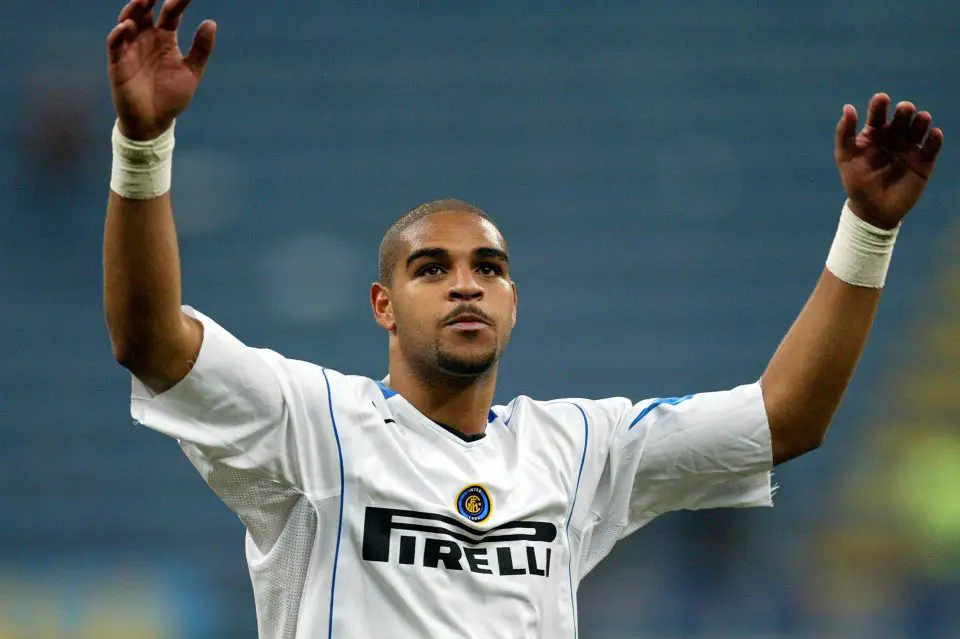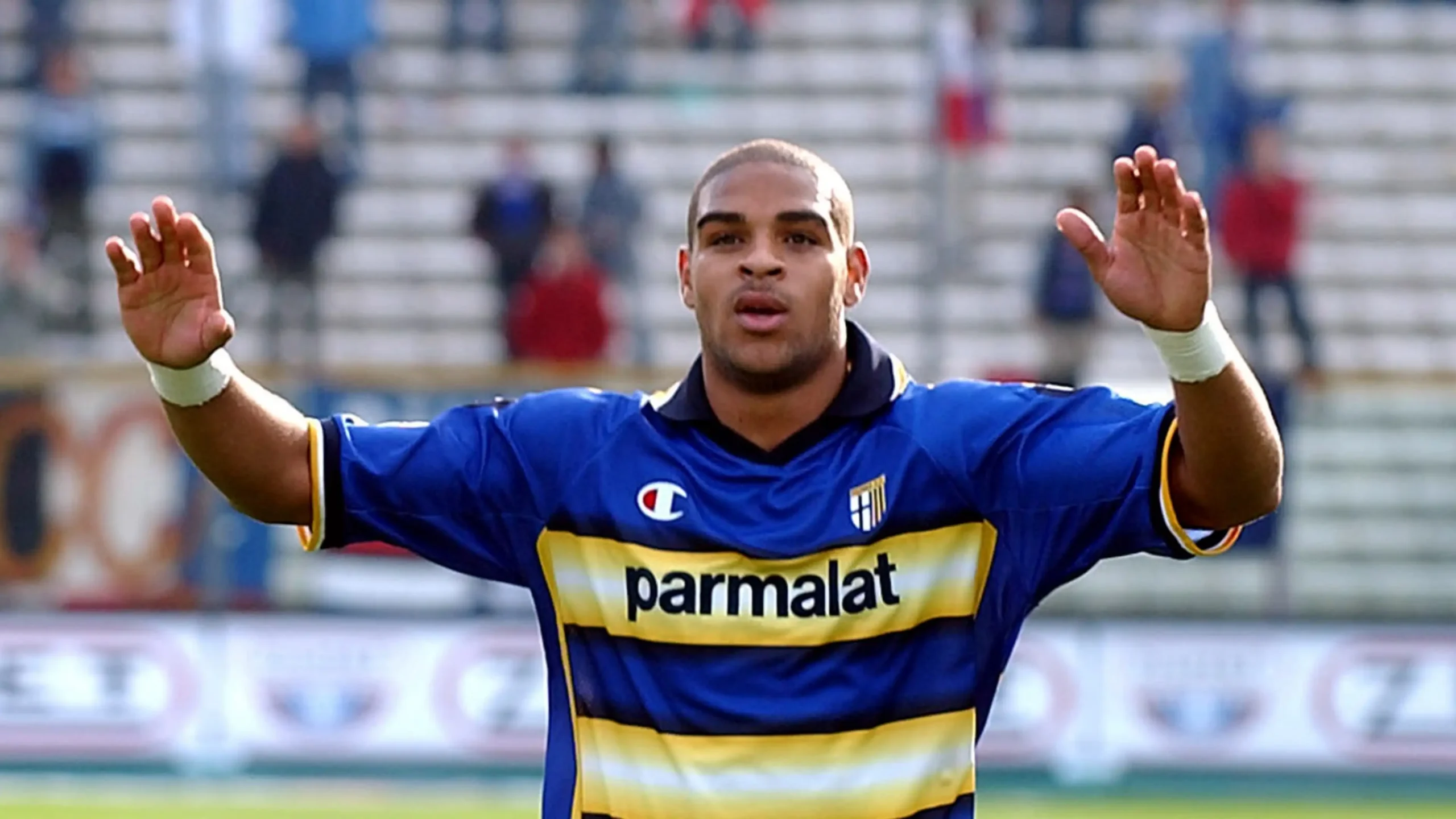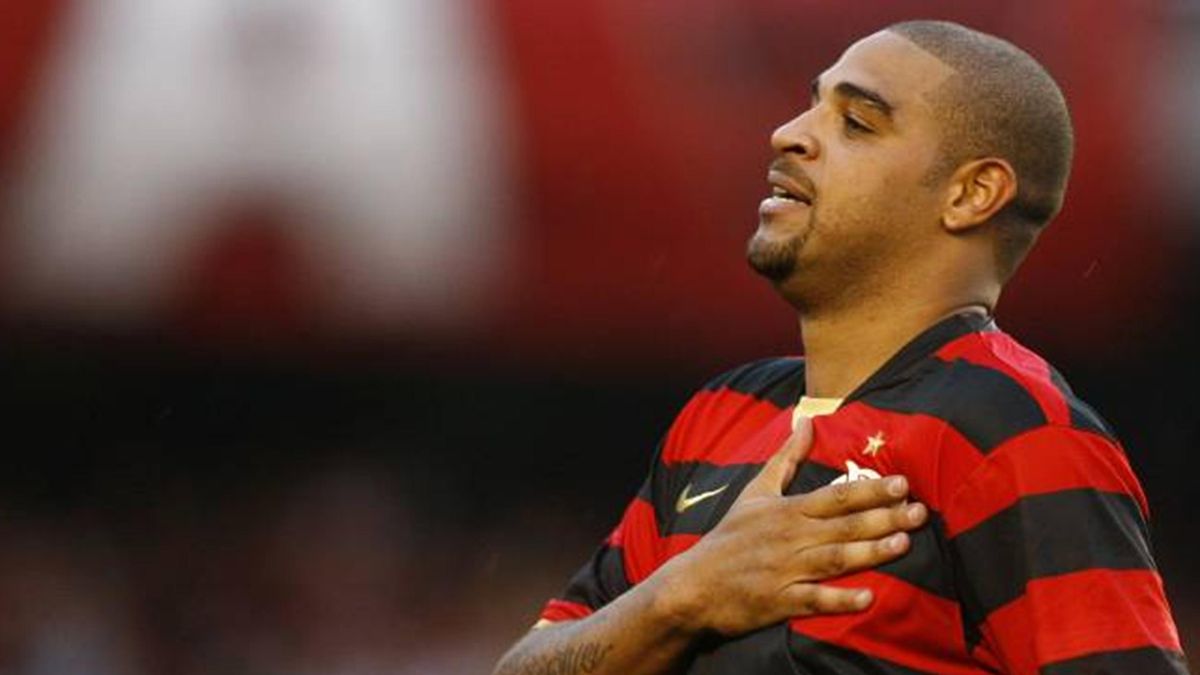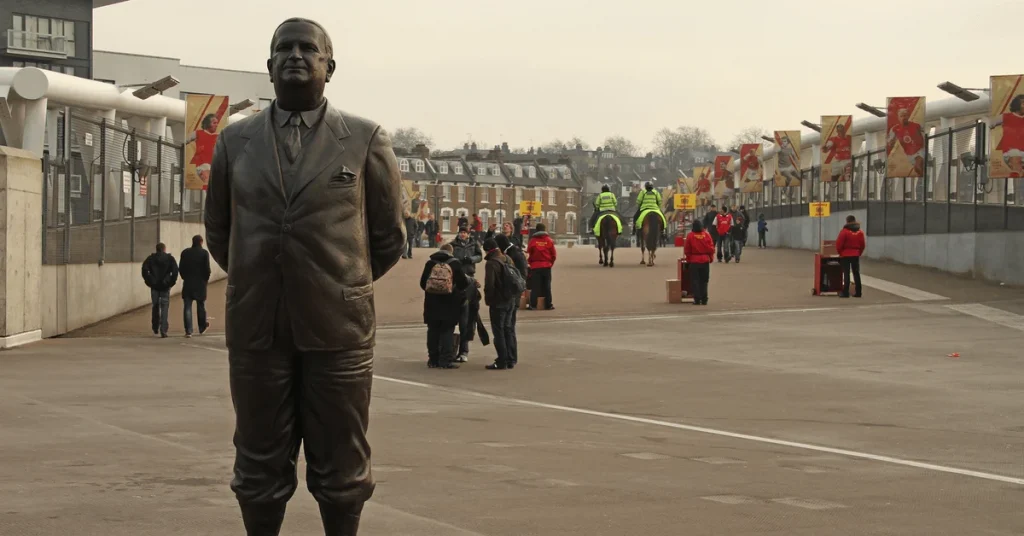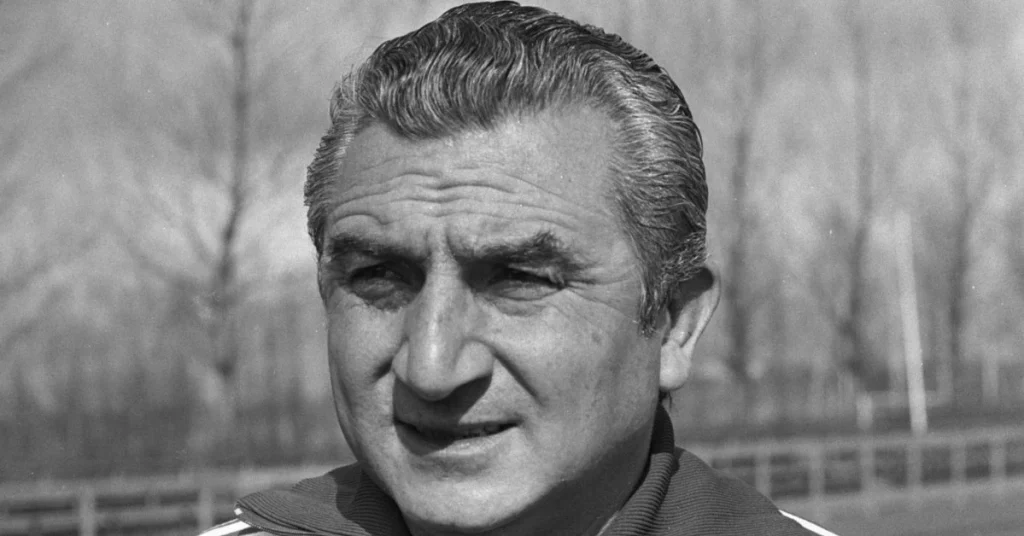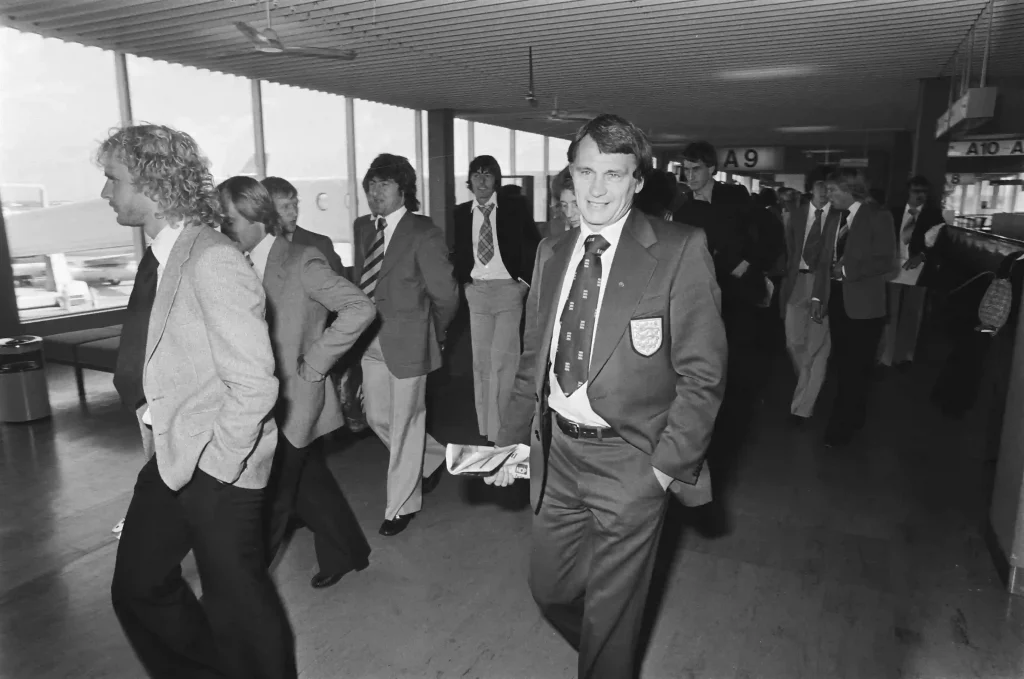Adriano Leite Ribeiro, known simply as Adriano, is something of a special case in the hall of Brazilian footballing greats.
He is much more of a ‘what-if’ than a legend, but unlike other ‘what-if’ players, he had all the talent and showed everyone he possessed ability in abundance.
Making his professional debut at eighteen years old Adriano quickly impressed at the highest level, earning an international debut during which he also impressed; fans and the media considered him the long-term successor to Ronaldo Nazário.
He was set to become the greatest Brazilian striker of all time and lived up to this expectation until it all went wrong.
This is the story of how Ronaldo’s successor decided to burn out, rather than fade away.
Against All Odds
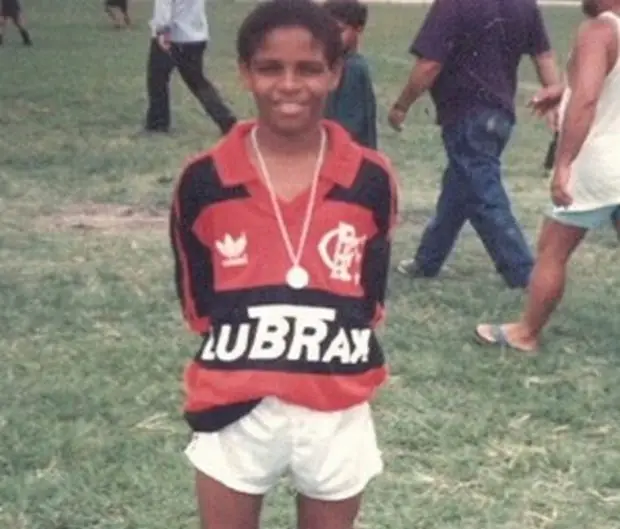
“Apart from two or three Botafogo fans, my whole family supports Flamengo through and through. That is how it all started… That for me was like, ‘Bloody hell!’ From the favela, I went to play at a Flamengo school just because they paid the fees.”
Being enrolled at seven, Adriano did not fully understand quite how big of a deal playing for Flamengo’s academy was. In his young mind, he was still playing for fun. Years passed and Adriano learned of this potential and his responsibility to provide for his family.
Flamengo were unimpressed by his attitude, and his smaller stature, the boy only shooting up to 6 ft 2 in his late teens
He was saved by ‘Carlinhos’ (“not the famous Carlinhos” in his words) who vouched for his talents and convinced management to let him stay. He bounced to full-back and then midfielder but found no success; as a last-ditch, they employed him as a striker.
Using his favela-gained experience he pushed and punched his way through the experienced defence, shot the ball with such power that it flew back to the halfway line and impressed fellow team-mates highly. As his reward, ‘the famous Carlinhos’ promoted him to the first team.
On 2nd February 2000, in a Torneio Rio-São Paulo match vs Botafogo, he made his debut, and four days later he scored against São Paulo in the same competition.
He continued to impress throughout his first professional season, netting ten goals in twenty-four league appearances and extending his stay at the outfit by two years in June.
The European Dream
In the following window, it comes as a surprise when Adriano’s transfer to Inter Milan for the 2001-02 season is announced. During a friendly match against Real Madrid, Adriano impresses and scores his first goal for the club:
“My shots were very accurate in training… It looks like it was God. No, it was God indeed. Then Cúper subbed me on in the second half. We earned the free kick and I took the ball, but Materazzi wanted to take it. Materazzi is f***** rude, that big centre back, he kicks everyone. He said, ‘I’ll take it’, My thought was, ‘I’ll step back, then’. But Seedorf said, ‘No, Adriano will take it’…”
Materazzi stands aside, while Adriano takes a three-step run and hammers the ball to the right of the wall. Casillas dives correctly but has no chance. It soars near-instantly into the bar, ricochets into the back of the net and into the ground.
Inter took the lead 2-1 and held it until the end, securing them the win against a European rival, all thanks to a nineteen-year-old Brazilian.
He went on to appear for Inter eight times and score once in the league before a loan to Fiorentina in the next transfer window, appearing for them fifteen times in the league and scoring six goals.
He’d spent the last two years gaining valuable experience in his new position, and a transfer to Parma proved it. Arriving at Parma in September 2002 on a co-ownership deal with Fiorentina, he got to work immediately.
The young Brazilian found impressive form, assisted by a fierce striking partnership with Adrian Mutu; as a result, he scored thirty-seven goals in twenty-three appearances across two and a half seasons.
Clearly, he was blooming into a star striker, and in January 2004 Inter came knocking for Adriano once again – landing a four-and-a-half-year contract for €23.4 million.
In his second stint, he settled in at San Siro as a different man. In half a season he scored twelve goals, helped Inter reach third in the league and this success earned him several call-ups to international football.
Considered Ronaldo’s long-term successor, his true chance to prove himself came in the 2004 Copa América – he of course did not disappoint. Brazil won the tournament handily, with Adriano earning himself the Golden Boot with seven goals.
His personal life, however, was due to take a tragic turn the following month. On 4th August 2004, Adriano’s father Almir Leite Ribeiro died during the night; he was forty-four.
“He got a phone call from Brazil ‘Adri, dad is dead’. I saw him in his room, he threw the phone and started screaming. You couldn’t imagine that kind of scream.” – Inter Milan captain Javier Zanetti
A huge part of Adriano’s life had been torn away so soon. The main reason he was a footballer, the man who taught him everything. Despite the circumstances he pressed on, enjoying his peak career form in the following ten months, scoring a combined forty-two goals domestically and internationally at only twenty-two years old.
Mental Health Struggles
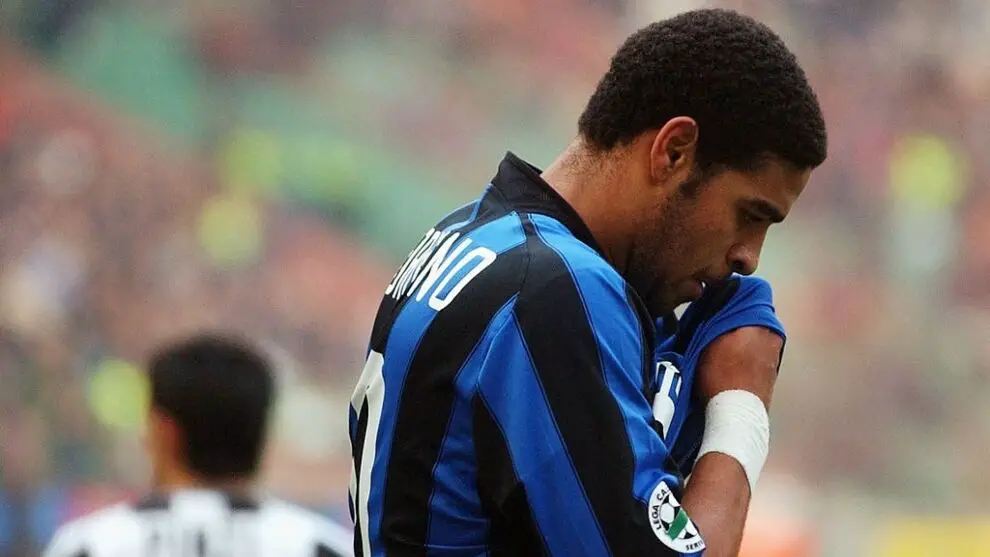
He had seemingly not processed his grief and cracks were beginning to show at San Siro – and internationally. Brazil coach Dunga did not select Adriano for a friendly game against Ecuador, even actively calling for him to turn his focus back to football; most didn’t know Adriano was suffering behind the scenes.
By late 2007 Adriano’s depression had increased to visible levels; he was disinterested with training and play and largely unfocused.
Massimo Moratti looked to help and sent Adriano back to his native Brazil at the request of Inter’s medical staff. Living in the area once more, Adriano quickly found São Paulo interested in his talents. Despite his affiliation with Inter, Adriano gave Moratti the call:
“’Adriano, do you wanna stay there for a bit, then?’ ‘Yes, I’m not gonna lie to you’. He never stopped paying me, man. Can you imagine that? Never. I’m not lying. ‘Do you want to stay at São Paulo?’. I do, I’ve started to feel myself again’. ‘That’s OK’.”
Moratti arranged the loan to São Paulo to help Adriano with his depression and path back to football, even paying his wages whilst doing so.
His loan spell at the Brazilian outfit saw him play twenty-nine games and score seventeen goals. A clear return to form, before departing his native Brazil once more to return to Inter for what would be his final six months with the club.
Adriano opened his 2008-09 campaign scoring regularly, seemingly returning to form, scoring his eighteenth goal in the Champions League and seventieth in total for the club in a 1-0 win over Anorthosis Famagusta in October.
Doing Himself And His Father Proud
The month following, Adriano again suffered from a drop in form. His grief had reared its head again and early in December, Adriano received special permission to return to Brazil early.
He made several appearances internationally but once his duty was over he failed to return to Inter, and three weeks later on the 24th he rescinded his contract. A free agent again he signed with his childhood team Flamengo with a clear goal: To win the Brazilian Serie A and prove himself doing so. And so he did.
When Adriano arrived at Flamengo they stood thirteenth in the table. Thirty appearances, nineteen goals and four assists later, he was the joint top goalscorer and led Flamengo to their first title since 1992.
It was vindicating. He’d proved himself to his home crowd and won the title for his family’s favourite team, including his late father. It would be rather fitting then that his career essentially ended here.
Adriano played for five further clubs spanning from 2010-2016 – big names including Roma, Corinthians and Flamengo (again).
He only made a total of eleven appearances and scored one goal. Pundits and commentators claimed the loss of his father.
He cited injuries as the issue, claiming he needed surgery on his Achilles after which his shot and technique was never the same. I think in reality it was a mix of both.
Though his career was haphazard after the death of his father Adriano had proven that he could deliver when driven, ending on a cathartic high winning a title for his childhood team and losing interest in the game quickly after.
Maybe sometimes it’s better to burn out rather than fade away…
